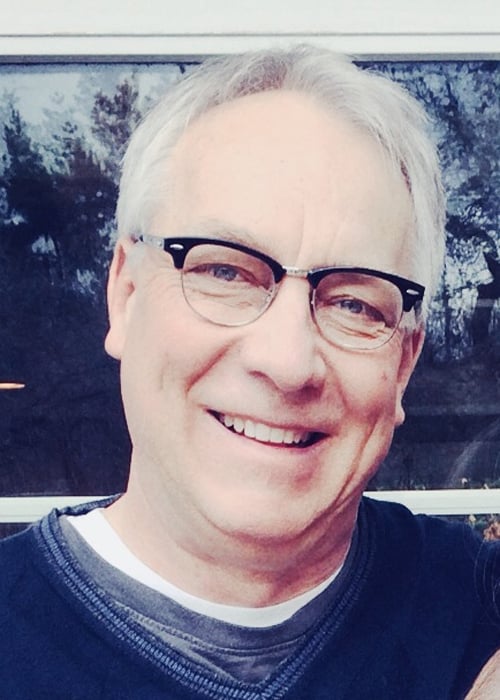Celebrating 20 Years of Service: Ivanti Employees Reveal Why They've Stayed
"If only I’d spent more time at the office" isn’t a common deathbed utterance for sure. But on the flipside, there are plenty of reasons why people stay devoted to their jobs and employers for years—even decades. What’s the secret to long-term worker loyalty? It’s a whole load of factors. Here’s a sampling:
- Work that has purpose and meaning
- To stay part of something special
- Personal contributions that make a difference
- Gifted and talented co-workers
- Irreplaceable culture
- Challenge and excitement
- Benefits, incentives, and compensation
- Career development
- Great relationships with leadership
- Work-life balance
Among the Ivanti employees recognized recently for achieving the milestone of 20 years of service are (left to right): 
- Kevin Smith, Senior Channel Sales Manager (Toronto, Canada)
- Bari Carney, Senior Renewal Account Manager (Rutherford, New Jersey)
- Paul Petersen, Vice President, Corporate Strategy and Sales Channel Enablement (Chicago, Illinois)
- Deanne Benn, Corporate Paralegal (Colorado Springs, Colorado)
- Gary Wang, Senior Sales Engineer (Sydney, Australia)
To learn a little more about why they’ve “stayed so long,” we sent them some questions and requested their responses:
Q: Twenty years is a long time to be with one company. What is it about Ivanti that has made you stay?
Kevin Smith: As a channel manager, I always found the opportunity to work with our partners very rewarding. Every day provides new and different challenges, and working in a team environment makes my job feel like I am part of a team. I have also been blessed to have strong mentors guiding me over the years.
Bari Carney: I came to Ivanti via Landesk and the Touchpaper acquisition at the end of 2008. I’ve been lucky to be part of hard-working teams throughout my time with Ivanti and I love the people I work with. I am currently part of the Renewals Team and have been since it was formed back in 2011. It has been great to be part of something from the start and I love seeing how successful we have become. My manager motivates me to help achieve our goals and makes me feel I am a valued team member. I am a remote employee and Ivanti helps me to have a manageable work/home-life balance. All of this makes a world of difference and makes me want to stay with Ivanti.
Paul Petersen: I wanted to manage a branded product and be involved in all aspects of the business: focus on revenue is primary so sales is my focus—but I plan marketing as well as product development. Ivanti allows for individuals to take action in their area. I love the support my team gets while we focus on generating sales and a better product.
Deanne Benn: Most importantly, there have always been very wonderful people to work with. I also enjoy the variety of work there is in a software company. There is a prestige being in the tech field, and for me, there has always been better compensation than in other fields.
Gary Wang: Without a doubt, it’s the people and the culture. I’ve had regular catch-ups with many of my ex-colleagues over the years and every time we get together, we reminisce about the great times we had working together. Since they left, none have ever been able to find a similar culture. If anyone does think about leaving, I ask them the same question: Sure, the grass may look greener, but what are the people like?
Q: What are three words that best describe the Ivanti culture?
Kevin Smith: Teamwork, respect, growth.
Bari Carney: Teamwork, rewarding, challenging.
Paul Petersen: Responsive, accountable, engaged.
Deanne Benn: “Work/life balance” is important to me.
Gary Wang: Passionate, fun, camaraderie.
Q: What are some of the changes you’ve seen since you started with the company?
Kevin Smith: The biggest change has been the market in which I serve. When I started with GoldMine (later FrontRange, then HEAT, then Ivanti), the CRM market had only a handful of players; today that market has exploded with hundreds of vendors all competing for a mature and savvy customer base. Another major change is how technology changes the way we sell. In my early days at the company, we spent a good part of our days dressed in suits visiting prospects in face-to face-meetings. Today’s culture is much different—face-to-face boardroom meetings have been replaced with web meetings and business attire is much more casual.
Bari Carney: As mentioned, I came to Ivanti via Landesk and the Touchpaper acquisition at the end of 2008. Landesk was an Avocent-owned company. Avocent was purchased by Emerson, which then spun off Landesk, and Landesk in turn was purchased by Thoma Bravo. More recently we were purchased by Clearlake Capital and merged with HEAT and rebranded to became Ivanti. That’s a lot of change over the last 10 years. When we were purchased by Thoma Bravo there was a focus on renewals and the team was created. I like working with existing customers and this has been a great fit for me.
Paul Petersen: This will seem obvious, but the big change was the internet and mobility. Twenty years ago I used Netscape, Yahoo, a Palm VII, and Blackberry—brands that have all but disappeared. The internet changed the way apps are developed and how people use applications—moving from server-based to the cloud. Faster access, lower admin, cool user interfaces.
Deanne Benn: There have been many different company combinations through acquisitions and mergers large and small over the years, but today’s Ivanti is the biggest by far, and with the largest product offering. It seems that we are poised for still greater things.
Gary Wang: I come from the HEAT side of the business and when I first started, it was during the merger between GoldMine and Bendata. The organization has since changed its name from GoldMine, to FrontRange Solutions, to HEAT Software, and now Ivanti. The organization has also grown significantly. In Australia itself, there were less than 15 people back in 1999, and now we have just moved into our brand-new office with more than 30 employees.
Q: What has your professional journey been like to get where you are today, and how has your role changed over the years?
Kevin Smith: My professional journey at Ivanti has taken me through five company name changes and numerous senior management changes. My official role strangely enough has not changed that much other than I have greater input on product-related matters, which I really enjoy.
Bari Carney: Touchpaper was a UK-based company with a small US presence. I helped the sales team with renewals and sales quotes. I transitioned to a Sales Specialist at LANDESK and onto a Renewals Account Manager with Ivanti, achieving Senior Renewal Account Manager last year.
Paul Petersen: My goal was to work for branded companies: Symantec, WinFax, Goldmine—and we were big in retail at the start and moved more to channel partners over time. And I always found a new area to work on so moved from sales to channel management to now General Manager. I just focused on the work and was willing to take some risks and show I wanted to run it. We also had change in ownership and changes in exec staff and goals; I adapted to new corporate initiatives while working to keep sales on track without disruption.
Deanne Benn: I was the first paralegal the company had hired when I joined the legacy HEAT/Service Manager side of the business, so I have seen a legal team of varying sizes up and down over time. My team now is the largest I’ve ever worked with, but each one is a great asset and easy to get along with. Sometimes my role has concentrated on corporate and intellectual property matters, and sometimes the bulk of my work has been customer contracts and vendor set-up, but never has there been a dull moment.
Gary Wang: My history with Ivanti goes beyond the 20 years as I was a partner implementing Ivanti’s solutions since 1996. I came on board as a Professional Services Consultant, but my heart was in pre-sales. As soon as a Sales Engineering role became available, I quickly moved across and have loved it since. I get to meet different people all the time and have travelled the world. The SE role has transformed over the years, from a technical role to perhaps a magician. We don’t have a lot of time during a demo and people have short attention spans. If we don’t deliver a demo that is compelling, contextual, and entertaining, the audience will switch off and we will lose them.

